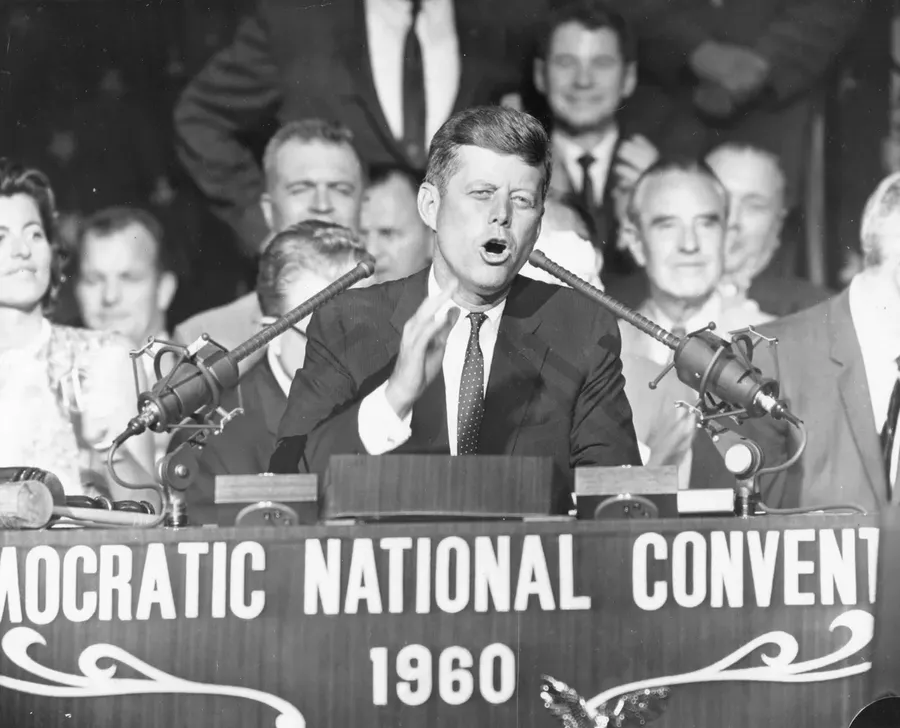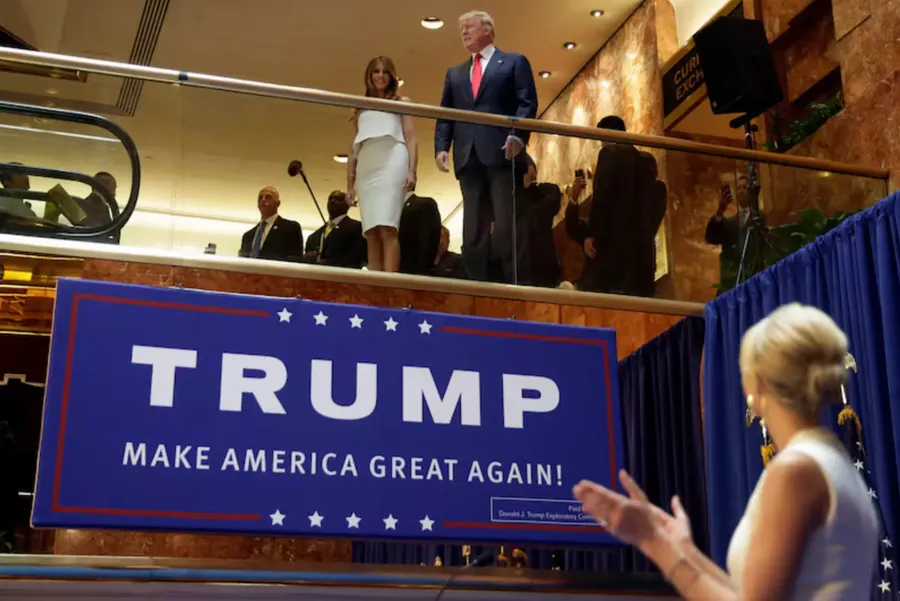Democratic Norms: How Republicans Failed Our Democracy – and What Comes Next
by Blakely B.
Americans speak of our Constitution as a structure so carefully designed that it could withstand any threat. Its checks and balances are self-executing, and no single leader could bend it to his will. It is a comforting belief. Yet the record of our own history shows that the Constitution succeeds only when political leaders uphold the norms that allow it to function. It has endured because generations of political leaders have upheld basic democratic norms. They understood that a system of written rules works only when leaders interpret their authority in ways that preserve the spirit of democracy.

For most of American history, those unwritten commitments formed a kind of quiet architecture. They guided politicians in moments of crisis and helped maintain faith in democracy. They kept disputes from escalating and reminded those in power that their legitimacy depended on the willingness to honor boundaries they could, in theory, violate. When these guardrails held, the constitutional system worked. When they weakened, the entire structure became vulnerable in ways that most had not imagined possible.
Over the last decade, that quiet architecture began to give way. What collapsed was not the Constitution, but the willingness of Republican leaders to uphold the democratic norms that make it workable. Confronted with a demagogue who showed open contempt for those norms, they chose to usher him forward instead of stopping him, clearing a path for a figure whose instincts threatened the basic stability of the system.
The political consequences of that failure are shaping our present moment. Democrats’ sweeping victories in the 2025 off-year elections have sparked intense debate over what kind of leaders should carry the party forward. Beneath those discussions runs an increasingly illiberal urge and a desire for retribution. The impulse is understandable. But if Democrats hope to avoid repeating the Republican Party’s collapse into irresponsibility, they must resist the temptation to elevate a figure who treats democratic norms as expendable. The path away from authoritarianism depends on choosing leaders who will safeguard the restraints the GOP abandoned.
Democracy: A Practice of Restraint
Democracy imposes a kind of discipline that other systems do not require. In authoritarian governments, decisions can be made instantly and without compromise. In democracies, political life feels slower and more frustrating. Decisions must pass through procedures, committees, courts, and elections. The process often yields only partial victories, and the people who lose must accept the legitimacy of that loss. This acceptance is not natural. It is taught over time through political culture. It requires an understanding that democratic authority flows from rules rather than from force or personality, and that even the most powerful elected officials remain bound by expectations of restraint. Many democratic leaders internalize this discipline. They know that rising to power means inheriting a system they did not build and cannot sculpt to their own desires.
Authoritarians experience these same constraints as a flaw of democracy rather than a feature. When outsiders with demagogic instincts enter politics, they tend to view institutions as obstacles. Judicial review, investigative oversight, legislative compromise, and a free press all feel like restraints on their rightful power. They begin by attacking rivals and critics. They escalate to bending rules, then to openly demolishing them. Because constitutions always contain ambiguities, they discover that much of what we call “democratic practice” rests on norms rather than on enforceable law.
This is why democratic norms matter. They fill the empty spaces between the formal rules and prevent those gaps from becoming opportunities for abuse. They tell political leaders not to stretch powers that were never meant to be stretched. They create expectations that certain forms of conduct, even if technically legal, violate the shared understanding of how democratic officials ought to behave. When these norms are strong, leaders who break them face real social and political costs. When they are weak, leaders come to see breaking norms less as a transgression than as a practical necessity.
For decades, norms kept the American system stable enough that many voters began to question their importance or failed to notice them at all. Feeling safely anchored in their partisan corners, they assumed the system would hold no matter who their party nominated and trusted that someone else would keep the truly dangerous figures away from power.
The Gatekeepers
The founders, wary of populist passions, worried that the presidency might someday be captured by a figure with dangerous charisma. Alexander Hamilton warned that “of those men who have overturned the liberties of republics, the great number have begun their career by paying an obsequious court to the people; commencing demagogues, and ending tyrants.” The Electoral College was intended to prevent this by empowering a set of informed intermediaries to screen candidates. That idea collapsed within the first few decades of the republic once political parties emerged, but the need for some form of filtration remained.

Senator John F. Kennedy Accepting the Democratic Party Nomination for the Presidency of the United States – July 15th, 1960
For most of American history, political parties played that role. The system was far from democratic. Party bosses, governors, senators, and mayors exerted massive influence over nominations. Many voices in American society, especially women, minorities, and the working class, were excluded. However imperfect, this system had a stabilizing effect. Party elites knew the contenders personally and evaluated their judgment, stability, competence, and character. They disliked provocative outsiders because such figures could not be controlled, might cost the party elections, and could destabilize the system from which those elites derived their authority.
Reforms in the early 1970s transformed this process. The Democratic Party opened its nomination procedures to binding primaries and caucuses. The Republican Party soon followed. Suddenly candidates could circumvent the establishment and appeal directly to voters. That development was profoundly democratizing, but it also introduced a new vulnerability. A candidate who inflamed passions or exploited resentment could accumulate delegates without the support of any party leader.
For a generation, the invisible primary compensated for this weakness. Candidates needed relationships with donors, editorial boards, governors, activists, and interest groups. They needed a national organization. Outsiders rarely succeeded, but two developments changed the landscape. The first was the explosion of outside money, especially after the Supreme Court’s Citizens United decision. The second was the emergence of cable news and online media ecosystems that conferred celebrity status instantly and rewarded provocation over experience.
This was the political terrain when Donald Trump descended the escalator at Trump Tower.

Moments before disaster, June 2015. AP
The Abdication
Trump entered the race with no endorsements from national Republican leaders. In the invisible primary, he finished dead last. Governors, senators, and major donors lined up behind other candidates. They may have disagreed among themselves about whether Jeb Bush, Marco Rubio, or someone else should lead the party, but the broad consensus was that Trump should not be the nominee. He had no political experience, no governing record, and no reputation for public service. What he did have was universal name recognition and a talent for speaking in ways that captured attention and inflamed deep anxieties. He also had a right-wing media echo chamber that treated him as an authentic voice for its audience’s grievances.
Republican leaders saw the danger. They knew his rhetoric about immigrants, religious minorities, political opponents, and the press crossed boundaries that previous presidents had respected. They knew that his repeated flirtation with conspiracy theories was a warning sign. They knew he had no experience managing public institutions and no interest in learning. And they said so, in public and on the record. Mitt Romney, John McCain, Lindsey Graham, and many other prominent Republicans issued clear warnings that he was unfit for the presidency and would be bad for both the party and the country.
But as the primary season unfolded, the structure that should have kept him out began to buckle. Trump’s celebrity, relentless media coverage, and crowded field of rivals allowed him to win pluralities in early contests without winning over party elites. Even then, most Republican officeholders held back. It was only after he began stringing together primary victories that endorsements started to trickle in, at first from marginal figures and backbench members of Congress who saw an opportunity to attach themselves to a rising force. Rather than rallying around a single alternative or using their collective weight to signal that Trump was unacceptable, Republican leaders fragmented, hesitated, and waited to see whether someone else would stop him.
By the time it became clear that no one would, many had already convinced themselves that resistance was too costly. When Trump began winning primaries outright, those same leaders abdicated the duties of democratic gatekeepers. Instead of forming a united front to deny him the nomination, they treated his victories as a fait accompli. They rationalized their endorsements as necessary for party unity and told themselves that he could be controlled. Some decided that winning with Trump was better than losing without him. Others persuaded themselves that a Clinton presidency would be intolerable, even if the alternative posed obvious dangers to our democracy.
A small number of active Republican politicians refused to endorse him, but almost none endorsed Clinton, even though they understood she was the only viable alternative to a presidency they believed was dangerous. Their reluctance to act decisively created the impression that the party had accepted Trump as legitimate. That normalization reassured voters who might otherwise have hesitated. Had Republican leaders formed a united front against him, they could have split the electorate and likely kept him from winning. Instead, they chose short-term partisan advantage over the long-term stability of the system they were entrusted to protect.
What Democracy Requires of Us
If Democrats regain unified political power, they will face enormous pressure to retaliate for the harms of the Trump era by bending rules and norms in their own favor. That temptation is understandable, but it is also a trap. Democracy cannot be rebuilt through acts that repeat the very violations that threatened it. The antidote to norm-breaking is not more norm-breaking. A democracy worthy of trust does not look away when officials break the law, abuse their office, or betray the public; it holds them to account through visible, lawful processes that can withstand scrutiny. This approach must be judicious. The people we choose to prosecute, and the way we pursue them, must leave our courts and institutions stronger in the eyes of the country. Otherwise, we deepen the belief that justice is nothing more than partisan revenge.
For better or for worse, the future of American democracy rests on the choices of citizens. Parties have lost much of their filtering power, and institutional vigilance cannot substitute for public judgment. Voters must evaluate candidates not only by the policies they advocate but by their character, their respect for restraints, and their willingness to inhabit power rather than dominate through it. They must reject leaders who see opponents as enemies and public institutions as instruments of personal reward.
American democracy has survived crises before. It has survived civil war, depression, segregation, and mass protest. It survived because citizens and leaders rebuilt the norms that had been lost and accepted the responsibilities that self-government demands.
We are living through another such moment. The guardrails of democracy have been weakened, but they have not disappeared entirely. Whether they can be restored depends on whether Americans choose leaders who understand that democracy is not a guarantee. It is a commitment.
Author’s Note: The historical examples and theoretical frameworks in this essay are informed by How Democracies Die by Steven Levitsky and Daniel Ziblatt, whose work provides essential insight into the role of democratic norms and political gatekeeping.